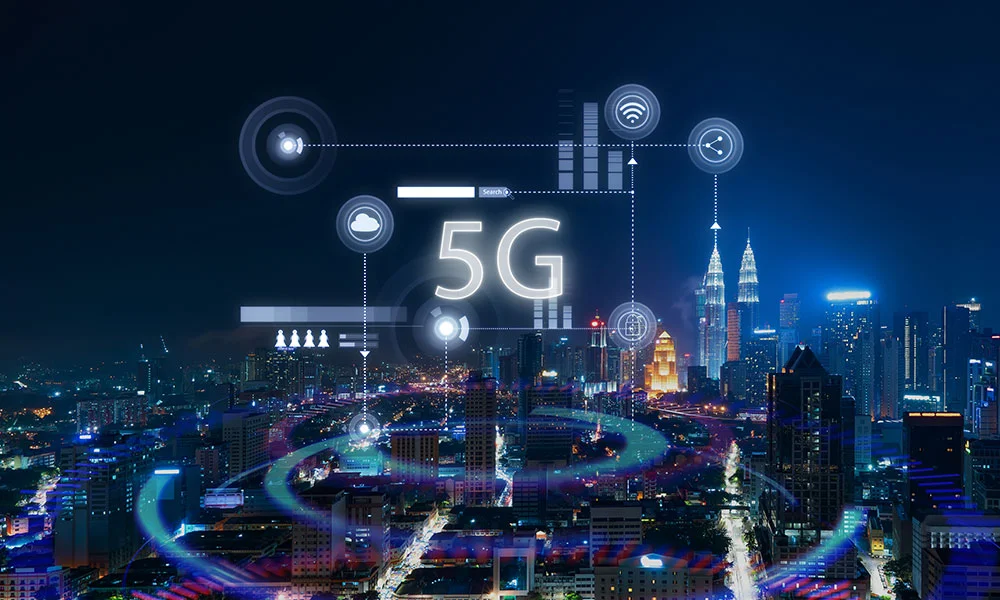Smart Cities – Urban development using data and technology

Introduction to Smart Cities
Cities have always been the heartbeat of civilization, but in recent years, they’ve begun to pulse with a new rhythm—one powered by technology and data. The concept of Smart Cities is transforming urban spaces into thriving ecosystems that leverage innovation for enhanced living experiences. Imagine streets that communicate with traffic lights to reduce congestion or buildings designed to save energy while maximizing comfort.
As more people flock to urban areas, the need for smarter solutions becomes increasingly urgent.
This shift towards intelligent urban development is not just about convenience; it’s about sustainability, efficiency, and creating better quality of life for all residents. Let’s dive deeper into the fascinating world of Smart Cities and explore how technology and data are used to reshape our urban landscapes.

The Benefits of Smart Cities
Smart cities offer a plethora of benefits that enhance urban living. By integrating technology and data, they create more efficient infrastructures. This leads to improved public transportation, reducing traffic congestion and travel times.
Environmental impact is another significant advantage. Smart technologies help monitor air quality and energy consumption, promoting sustainability. Cities can adapt their resources in real-time, minimizing waste.
Public safety also sees enhancements through smart surveillance systems and emergency response coordination. Residents feel safer with faster responses to incidents.
Moreover, these urban areas foster community engagement by providing platforms for citizen feedback. Technology bridges the gap between authorities and residents.
Economic growth flourishes as well; smart city initiatives attract businesses seeking innovation hubs. Job creation in tech-driven sectors becomes a natural outcome of this transformation.

Examples of Successful Smart City Projects
Barcelona is a standout example of a smart city. The city employs an array of sensors to monitor everything from air quality to traffic flow. This data-driven approach helps optimize public transport and reduce congestion.
Singapore has also made significant strides in urban development using technology. Their Smart Nation initiative integrates various technologies, including IoT devices, to enhance citizens’ lives through better services and efficient resource management.
In Copenhagen, the focus on sustainability shines brightly. The city’s bike-sharing system is enhanced by real-time data tracking, promoting eco-friendly transportation while reducing carbon footprints.
Moreover, Amsterdam stands out with its innovative use of smart lighting that adjusts based on pedestrian movement. This not only increases safety but also conserves energy effectively.
These cities exemplify how technology and data are used to create more livable urban environments that prioritize efficiency and sustainability.

Technologies Used in Smart Cities
Smart cities leverage a variety of technologies to enhance urban living. Internet of Things (IoT) devices play a crucial role. These sensors collect real-time data, offering insights into everything from traffic patterns to air quality.
Another key component is big data analytics. By processing vast amounts of information, cities can make informed decisions that improve infrastructure and services.
Cloud computing also supports smart city initiatives by providing scalable resources for data storage and processing. This flexibility allows municipalities to adapt quickly to changing needs.
Moreover, artificial intelligence enhances service delivery through predictive maintenance in public transport systems or energy management solutions in buildings.
Advanced communication networks like 5G enable faster connectivity between devices, enhancing responsiveness across urban environments. Together, these technologies create a seamless integration that drives efficient urban development using technology and data are used to transform our cities into smarter places for all residents.

Challenges and Concerns Surrounding Smart Cities
While the concept of smart cities is exciting, it also brings forth several challenges. One major concern is data privacy. As urban areas become more interconnected, vast amounts of personal information are collected and stored. This raises questions about who has access to this data and how it’s being used.
Another issue lies in the digital divide. Not all residents have equal access to technology or the internet. This can lead to disparities in services and opportunities within a city.
Infrastructure costs also pose a challenge for many municipalities eager to implement smart solutions. Upgrading existing systems requires significant investment, often leaving smaller cities struggling to keep up with larger counterparts.
There’s the potential for over-dependence on technology. If systems fail or are hacked, basic city functions could come grinding to a halt, creating chaos rather than efficiency.

Future Trends in Smart City Development
The future of smart city development is poised for transformative change. As urban areas evolve, the integration of artificial intelligence will play a pivotal role. AI can analyze vast amounts of data to enhance traffic flow and optimize public services.
Moreover, sustainability will take center stage. Cities will increasingly focus on renewable energy sources and green infrastructure. This shift not only reduces carbon footprints but also improves urban living conditions.
Another exciting trend is the rise of community-driven initiatives. Residents will have more influence over decisions that affect their neighborhoods, fostering a sense of ownership in urban planning.
Advancements in Internet of Things (IoT) technology promise seamless connectivity across city systems. From smart streetlights to intelligent waste management solutions, these innovations will create more efficient and livable environments for all citizens.

Conclusion
Smart cities represent a pivotal shift in how urban areas are developed and managed. By harnessing technology and data, these cities create environments that enhance the quality of life for their residents. The benefits are numerous, from improved transportation systems to efficient energy use.
Successful smart city projects around the globe demonstrate the potential for innovative solutions tailored to local needs. Cities like Barcelona and Singapore showcase how integrating technology can lead to smarter urban planning.
However, challenges exist as well. Privacy concerns, infrastructure costs, and technological disparities must be addressed if smart cities are to fulfill their promise effectively.
Looking ahead, trends suggest an increasing reliance on artificial intelligence and green technologies in urban development initiatives. As we continue down this path of innovation, it’s essential for communities to engage with these changes thoughtfully.
The journey toward smarter urban spaces is underway. By embracing technology and data-driven strategies, cities have the opportunity not only to evolve but also to thrive in a rapidly changing world.






